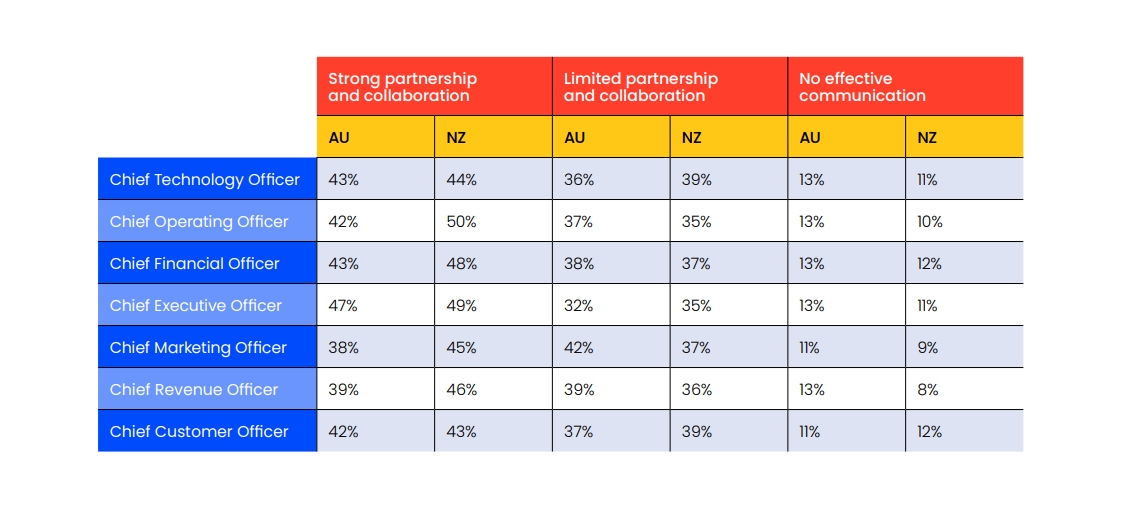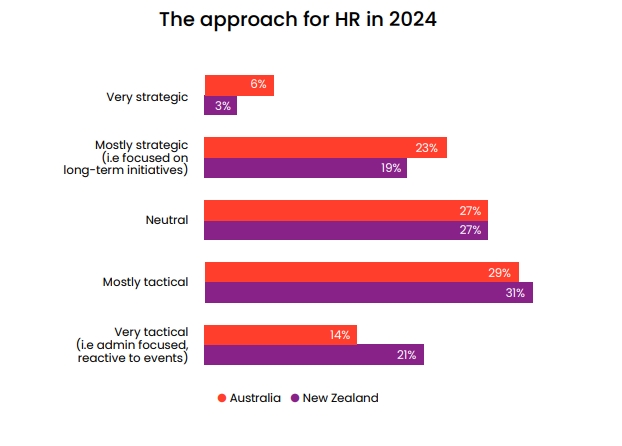
Radical changes in the workplace mean HR expertise has never been more important in strategic decisions. Here's why and how to ensure your seat at the table

“People are our most important asset”, business leaders often say. Yet many of the HR leaders responsible for managing people still feel left out when it comes to working with senior management.
Figures from Elmo Software’s HR Industry Benchmark 2024 report found only about half of HR leaders in Australia and New Zealand have “strong partnership and collaboration” with their CEO and between 8% to 13% said they had “no effective communication” with the senior executive group including COOs, CMOs and CTOs.

Source: Elmo 2024 HR Industry Benchmark Report
Associate professor Will Felps from the School of Management and Governance at UNSW Business School said while some progress in HR’s strategic role was made during COVID, this had receded and HR was still mainly seen as implementers.
But he believes the rapid changes in the workforce brought on by AI make it more important than ever for HR to have a seat corporate strategy table.
“The changing world means that business as usual when it comes to people policies is not going to make sense,” he told HRD.
“You're going to need people who understand the people part of the equation as you go into this wild new world.”
And businesses that fail to understand the value of HR at a strategic level put at risk the very plan they hope will deliver business growth.
“If HR isn't in the room when the strategy is set, you’re betting your plans on assumptions about talent that you haven't tested. HR is often the first to know if a strategic directive collides with lived reality and if we wait until implementation to listen, we’ll learn the hard way,” Felps said.
The Elmo report found almost half of the HR professionals surveyed planned to focus on tactical work, while just under a third said strategic.
“The findings are surprising, given the consensus that HR leaders need to be working more strategically to secure their seat at the decision-making table. But it suggests that while the intention is certainly there, many HR professionals are facing barriers to becoming more strategic,” the report said.
“The findings suggest that to make the shift from tactical to strategic, HR leaders require dedicated resources to make it happen. If they’re stuck trying to juggle both, the tactical tasks will always take priority as the strategic work gets pushed to another day.”

Felps, who teaches about leadership and human resources and how research can be applied in practice, says part of the problem may be communication and that HR can be seen as overly concerned about compliance issues.
“If you want to talk to a CEO about something you need to really speak in numbers, you need to speak in scenarios, you need to speak in narratives, were you basically quantify things – often times put a dollar value attached if you're a for profit firm to different initiatives and the bottom line value you think you're going to be creating," he said.
"I know that not all HR executives want to hear this, but sometimes I think that they really need to embrace a kind of support mindset where the idea is what are the goals and the language of the CEO and how can I basically serve that and how can I serve other functions in the organisation and other divisions in the organisation and try to understand what are their problems."
Felps believes HR leaders should lean into their skill as listeners and influence through problem solving and not retreat to where they have control - compliance.
“As a support function, you're not going to win by shouting louder," he said.
"You're going to win by figuring out what's the way that you can help the best and then get the resources to provide that help. If you're found to be helpful, you're going to be given a larger and larger budget, a larger remit, more initiatives, more programs."
Felps said it was critical HR professionals mastered the foundational skills of HR functions and then moved into areas such as business strategy and information technology.
“If you want to not just be an implementer, you have to understand what can AI do, how do information systems work, information architecture," he said.
“Basically you have to be curious about the rest of the functions and divisions in the organisation to be able to be helpful.
“You first have the master the pillars, but then once you get there, you kind of broaden out. This is sometimes called like at T shaped career where you start with, deep functional expertise and then you broaden out from there, especially when you get to the executive and director level.”